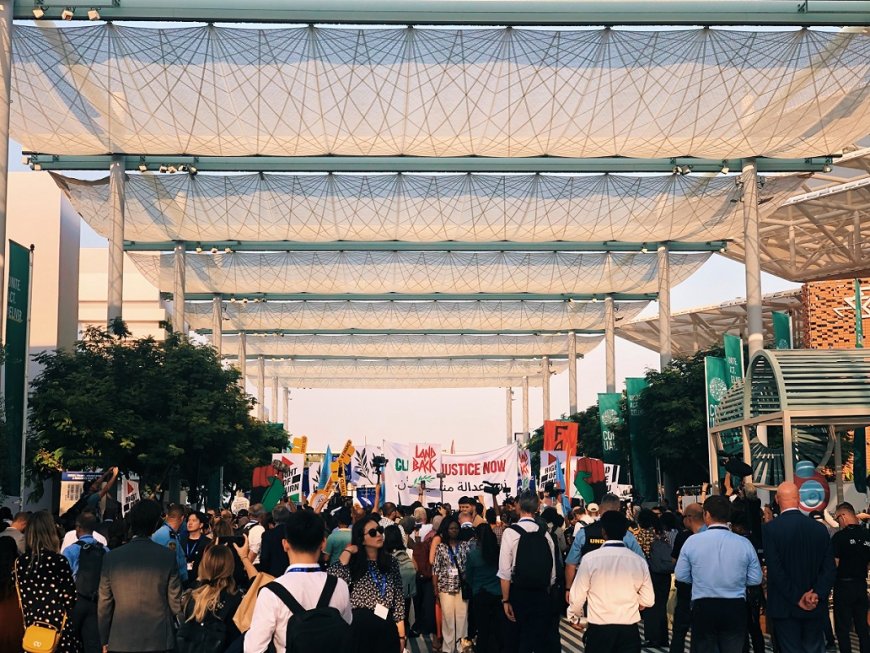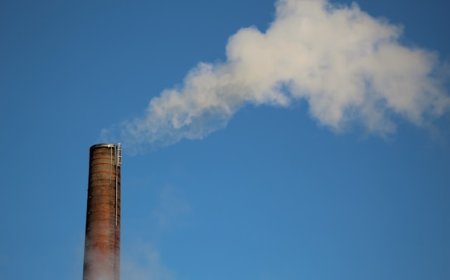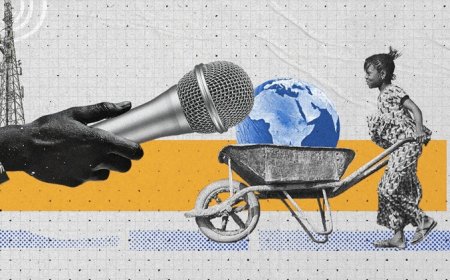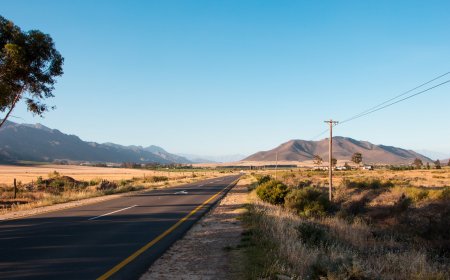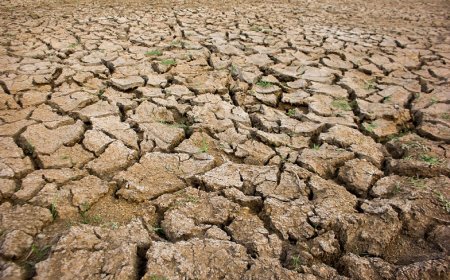Summary
- The COP 28 African common agenda, which was negotiated and spearheaded by the African Group of Negotiators on Climate Change (AGN) and Civil Society Organizations (CSOs), gave a strong indication that African States and CSO actors agree on issues of importance to Africans and matters of extreme urgency for climate action.
- The underperformance on issues of importance to Africans at COP 28 was evident in the decision to defer major financial decisions to COP 29 and the mere USD 134 million and USD 792 million committed to the Adaptation Fund and the Loss and Damage Fund respectively.
- African countries have a huge space to maneuver and emerge as leaders in climate action, both regionally and globally. Africa is home to the second largest tropical forest, emphasizing the continent´s environmental and ecological significance. Important levers of opportunities and potential also exist at the local level.
- Africa cannot do this on its own. Industrialized countries, who have contributed the lion share to the climate crisis, must do their share to mitigate further impact on African communities and support their adaptation efforts.
- Yet, as important as the COPs are in underscoring the significance of collective climate action and providing policy guidelines, the signals and outcomes of COPs are not enough. Concrete and ambitious action is dependent on the willingness and ability of governments and society-wide action.
Introduction and Background
Last year, COP 28 in Dubai marked another attempt by the world to address the causes and growing impacts of climate change, especially on the most vulnerable and at-risk populations and ecosystems. While these conferences, which have been held yearly since 1992 (with the exception of 2020 due to the COVID pandemic), can be similar and the results highly predictable, COP 28 was unique in several aspects, and achieved some notable firsts, including: the international agreement to transition away from fossil fuel; the Health Day, which culminated in the COP 28 UAE Declaration on Climate and Health endorsed by 143 countries; and a day dedicated to Africa, where leaders emphasized the significant climate finance gap, especially in adaptation finance, and called for an increase in climate action and green growth financing. In all, COP 28 was the largest in the history of climate negotiations, hosting an estimated 83,884 people in person and 2,089 online.
COP 28 also hosted the first-ever Global Stocktake, a process under the Paris Agreement that is designed to assess progress and mobilize stronger climate action every five years. The UAE Consensus, the result of Global Stocktake, covers a wide range of climate issues, including just energy transitions, mitigation, food security, climate finance, and loss and damage, and provides the Paris Agreement signatories with a clear indication of the urgent matter to focus on in the next round of Nationally Determined Contributions (NDCs)due next year.
In respect to outcomes, a significant number of commitments were made by both State and non-State actors, including a financial commitment of USD 85 billion towards climate action. The question now is, how did Africa fare? This short analysis synthesizes the outcomes of COP 28, their alignment with African needs and priorities, and their implications for climate change policy and action and broader society, with a focus on African countries.
The Africa Agenda at COP 28
The UAE Conference took place following the Africa Climate Summit, where leaders unanimously adopted the Nairobi Declaration as the basis for Africa’s common position at the COP and beyond. In addition to the Nairobi Declaration, a COP 28 African common agenda was negotiated and spearheaded by the African Group of Negotiators on Climate Change (AGN) and Civil Society Organizations (CSOs). Established at the first COP in 1995, the AGN is an alliance of African member States that is tasked with negotiating a unified agenda and spearheading issues of importance to Africans during climate change negotiations. Heading to the COP, the AGN Chair, Ephraim Mwepya Shitima, outlined the continent’s topmost priorities, which included scaling up climate finance, taking appropriate actions following the assessment of the Global Stocktake report, strengthening adaptation actions,operationalizing the Loss and Damage fund, furthering the just energy transition, and the need to grant Africa the special needs and circumstances status. Towards the end of the COP, the Chair also called on the world to “conclude with a decision on Climate Justice designed for Africa.”
Civil Society Organizations (CSOs), a collection of non-State and not-for-profit actors that represent a wide range of interests on behalf of common citizens also announced their list of five priorities to fight climate change: Adaptation; Loss and damage; Food systems; Land use; and Protection and Restoration of Forests. While the AGN and the CSOs’ priorities may not have been similar, they are complementary in nature, giving a strong indication that African States and CSO actors agree on issues of importance to Africans and matters of extreme urgency for climate action. The question therefore is, how did the COP perform against these objectives and priorities?
Key COP 28 Outcomes and their Implications for African Countries
In this section, we highlight the key outcomes of COP 28, assessed against the main priorities and needs, and their implications for climate policy and action in Africa.
Loss and Damage
On the first day of COP 28, the deal was sealed to operationalize the Loss and Damage (L&D) fund. Recognizing the limits of adaptation, the fund is designed to support climate-vulnerable countries as they deal with climate-induced loss and damage, including irreversible and non-economic loss and damage. All developing countries are eligible to apply for the fund, with a certain amount set apart for a category of countries called Least Developed Countries (LDCs) – the vast majority of which are African countries – and Small Island Developing States (SIDs), which also includes several African countries. Progress towards a long-awaited victory for the LDCs and SIDs was tempered by the mere trickle of funds amounting to USD 792 million – a drop in the ocean compared to what is needed. The UNFCCC Standing Committee on Finance estimates that developing countries will need between USD 5.8 trillion and 5.9 trillion by 2030 to tackle climate related loss and damages. Moreover, the fund is voluntary, an affirmation of the longstanding demands from developed countries. This is at odds with the demands of LDCs, SIDS, and climate justice advocates to hold the main climate polluters accountable and fully responsible for paying for climate loss and damage. These developments leave a lot to be desired, especially on the climate justice fronts. However, after decades of consecutive and effectual lobbying (the issue of loss damage was first brought to the world's attention in 1991 by Vanuatu), the historic agreement to operationalize the L&D is a step in the right direction.
Climate Finance
The finance COP 28 agenda was unveiled on the second day by the COP President Dr. Sultan Al Jaber with the Declaration on a Global Climate Finance Framework. The Declaration aims to ensure that climate finance is available, affordable, and accessible. While the Declaration builds on the momentum created by existing initiatives such as the Bridgetown Initiative, the Accra-Marrakech Agenda, the G20 New Delhi Leaders’ Declaration, and the African Leaders Nairobi Declaration on Climate Change and Call to Action, most of the finance issues were deferred to COP 29 with the adoption the New Collective Qualitative Goal (NCQG). The aim is to negotiate new climate finance above the previously determined minimum floor of a USD 100 billion annual pledge from developed to developing countries announced in 2009.
While other important financial pledges were also made, including the additional USD 3.5 billionto replenish the Green Climate Fund, the largest international fund dedicated to supporting developing countries in tackling climate change, deferment of major financial decisions to COP 29 and the mere USD 134 million and USD 792 million committed to the Adaptation Fund and the Loss and Damage Fund respectively, demonstrates the lack of grasp of the scale of developing countries’ climate financial needs.
However, despite the slow movement of climate finance action for developing countries at official COP 28 proceedings, a lot more was achieved on the sidelines, where the private sector and other non-state actors pledged financial support for climate action in developing countries. Examples include the USD 30 billion commitment announced by the UAE under the ALTÉRRA fund, the largest private climate vehicle, whose objective is to mobilize a USD 250 billion private-sector investment by 2030 to channel large-scale investment into climate solutions globally, particularly in the Global South. Moreover, recognizing the role of research and capacity-building in catalyzing low-carbon, high-growth investments, the UAE also launched the Global Climate Finance Centre (GCFC), a private-sector-focused think tank aimed at facilitating the availability, affordability, and accessibility of climate finance. Given the scale of the climate financial needs of developing countries, especially adaptation and loss and damage finance, the leadership by the COP presidency in support of climate finance diversification can be seen as welcome development for African countries.
Adaptation Finance and Action
Adaptation negotiations at COP 28 recognized the growing and evolving adaptation needs, as well as the growing gap in adaptation finance. In the end, parties adopted the UAE Framework for Global Climate resilience as part of the UAE Consensus. The work leading up to the actions at COP 28 provides momentum for further progress. More specifically, important language and provisions in the UAE framework on thematic targets for priority areas – such as water, health, poverty reduction, livelihoods support, and cultural heritage – send important signals on areas in urgent need of financing and implementation actions. As demonstrated by the AGN and CSO´s agendas for COP 28, adaptation finance and concrete actions are at the top of Africa’s needs and priority list. Given the urgency and current adaptation needs, and the gap in adaptation finance (current estimates show a financing gap of USD 194-366 billion per year for developing countries), the mere USD 134 million committed to the climate adaptation fund is a statement that the world has yet to come to terms with the scale and urgency of climate adaptation financial needs. The Framework also lacked specifics on implementation including metrics and indicators to measure progress, which was a priority area for African countries. A framework without the means of implementation, or one that lacks specifics, such as clear targets or guidelines on how progress would be measured, falls short of what is needed to address the growing risks of climate induced risks and vulnerabilities to lives and livelihoods, especially in African countries. This urgency is underscored in the latest Adaptation Gap Report, which shows that adaptation needs are over 50% more than previously estimated.
Just Energy Transition
Following the Africa Climate Summit in Nairobi, African stakeholders arrived at COP 28 with a consensus on the need for a just energy transition. However, for African countries, the outcome of COP 28 was a mixed bag, at best. For the first time since COP began 30 years ago, the world included commitments to transition away from fossil fuels in its outcome. Paragraph 28(d) of the Global Stocktake calls on the world to transition “away from fossil fuels in energy systems, in a just, orderly and equitable manner, accelerating action in this critical decade, so as to achieve net zero by 2050 in keeping with the science.” Given the role of fossil fuels in the climate crisis and the crush of science and politics at COP 28, the outcome was welcomed by both scientists and climate change advocates around the world. There is a lot to be desired of the language – for example, the use of the term “phase-down” instead of “phase-out” and the lack of implementation commitments and action pathways – but the fact that this was achieved in Dubai signals the willingness of the global community to confront the dominance of fossil fuel industries and their enablers.
Beyond the outcome concerning the transition away from fossil fuels, there were a multitude of discussions, side events, announcements, commitments, and agreements by both State and non-State actors as highlighted in the table below. Notable developments include: the Global Renewables and Energy Efficiency Pledge; increased momentum (expansion of leadership including countries such as Nigeria) on the Global Methane Pledge, which aims to cut emissions by 30% by 2030; and a call by world leaders to increase resources to support access to clean cooking solutions in Africa, with the African Development Bank Group promising scaled-up lending for clean cooking. Admittedly, all these outcomes and discussions add a layer of progress towards just energy transition and mitigation efforts globally. However, there was limited room in the formal negotiations at COP 28 to advance ambitious energy transition issues that affect African countries, notably in the areas of energy transition finance, energy access, green industrialization, poverty reduction, and transformative socioeconomic development. This is highlighted in the Global Stocktake, which underscores the shortfall in funding and a gap of ambition relative to the monumental needs for clean energy transitions and adaptation efforts in developing countries.
Food Systems and Agriculture
Crucially, COP 28 recognized the interlinkages between climate change and food security through theUAE Declaration on Sustainable Agriculture, Resilient Food Systems, and Climate Action. The Declaration underscores the pivotal role of agriculture and food systems in addressing climate change and building sustainable and resilient societies. With a commitment to inclusive engagement, the declaration unites diverse stakeholders working in food and agriculture around a shared vision of transforming food systems and enhancing resilience. It calls for a set of time-bound, aligned, holistic, and global targets by COP 29 at the latest, and actionable, evidence-based, locally appropriate food systems transition pathways to drive further action and accountability from governments, business, and finance actors. The 159 signatory countries to the declaration are “home to over 5.7 billion people and almost 500 million farmers, who produce 70% of the food they eat and are responsible for 76% of all emissions from global food systems, or 25% of total emissions globally.” In addition to enhancing the implementation of the “Country Food and Agriculture Delivery Compacts” announced at the 2nd Dakar Summit, and endorsed by 34 African heads of State and 75 ministers and heads of development organizations, the declaration will help strengthen food systems, build resilience to climate change, reduce global emissions, and contribute to the global fight against hunger, aligned with the UN Sustainable Development Goals (SDGs).
Another food systems-based announcement from COP 28 came in the materialization of the Alliance of Champions for Food Systems Transformation (ACF), a multilateral initiative by Brazil, Cambodia, Norway, Rwanda, and Sierra Leone aimed at creating a blueprint for improving food systems across the following areas: food and nutrition security; adaptation and resilience; equity and livelihoods; nature and biodiversity; and climate mitigation. With 40% of its founding members being African states – and smaller ones, at that – it signifies an amplification of African voices on adaptation measures as well as a small turning of the tables in international climate action leadership.
Finance was also mobilized. The COP presidency announced over USD 2.5 billion to support food security. The Bill and Melinda Gates Foundation joined hands with the UAE to provide USD 200 million to address food security and nutrition challenges stemming from climate change. The USD 200 million partnership for food systems, agriculture innovation, and climate action will focus on agricultural research, scaling agricultural innovations, and funding technical assistance for implementing the declaration. Addressing food systems and sustainable agriculture practices is a significant contribution for climate action by African countries because significant shares of emissions come from unsustainable practices, land use change, and waste management.
The outcomes highlighted above are not exhaustive but provide an overview of how African countries fared at COP 28 against their needs and priorities. The table below provides a comprehensive summary of major announcements and commitments by State and non-State actors at COP 28. This list prioritizes announcements and commitments made by African State and non-State actors and announcements made by non-African State and non-State actors that affect African countries directly or indirectly.
Summary of commitments and announcements by State and non-State actors at COP 28
| ANNOUNCEMENTS | AREA OF CLIMATE ACTION | SPEARHEADERS & INVOLVED PARTIES | SOURCES & FURTHER READING |
|---|---|---|---|
| Loss and Damage Fund [Operationalization] | Loss and damage Finance | Consensus from all countries | COP28. (2023). COP 28 Presidency unites the world on Loss and Damage. COP28 UAE. |
| Declaration on Global Climate Finance Framework | Finance | Barbados & 12 other countries | COP28. (2023). UEA leaders' declaration on global climate finance framework. COP28 UAE. |
| Declaration on Sustainable Agriculture, Resilient Food Systems, and Climate Action | Adaptation Finance Food systems |
159 countries | COP28. (2023). COP 28 EAE declaration on Sustainable Agriculture , Resilient Food Systems and Climate Action. COP28 UAE. |
| Oil and Gas Decarbonization Charter (OGDC) | Mitigation Renewable energy |
40% of global oil production companies & over 60% national oil companies | COP28. (2023). Oil and Gas decarbonization charter launched to accelerate climate action. COP28 UAE. |
| Fossil to Clean Campaign by “We Mean Business Coalition” | Mitigation Renewable energy |
Signed by 200+ companies | WMBC. (2023). Accelerating the Shift from Fossil Fuels to Clean Energy. We Mean Business Coalition. |
| Global Renewables and Energy Efficiency Pledge | Mitigation | 123 countries led by EU, US, & UAE | COP28. (2023). Global Renewables and Energy Efficiency Pledge. COP28 UAE. |
| Non-State Actors Call to Action for Transforming Food Systems for People and Nature | Adaptation Mitigation |
Farmer groups, indigenous peoples groups, businesses, civil society groups, philanthropies, financial institutions, research institutions | Climate Champions (2023). Over 200 Non state actors sign call to action calling for transformation of food systems for people and nature. United Nations Framework Convention on Climate Change. |
| Beyond Oil and Gas Alliance (BOGA) [new members] | Adaptation Finance Fossil fuel phase-out |
Initiators: Denmark & Costa Rica (COP 26) New members: Spain, Kenya, & Samoa |
BOGA. (2023). Beyond Oil & Gas Alliance adds new members and announces funding for Global South producer countries to catalyse a just transition away from oil and gas. Beyond Oil & Gas Alliance. |
| Clean Energy Transition Partnership (CETP) [new members] | Adaptation Fossil fuel phase-out Renewable energy |
New members: Australia & Norway | Gratton, Georgia. (2023, Dec. 5). Cop: Australia to stop financing overseas fossil fuels. Argus Media Group. |
| Utilities for Net-Zero Alliance | Energy efficiency Net-zero Renewable energy |
IRENA, UN Climate Change High-Level Championship, & 25 global utility/power companies | IRENA. (2023, Dec. 5). Global Power Utilities Declare Joint Action Plan to Drive Energy Transition at COP28. International Renewable Energy Agency. |
| Alliance of Champions for Food Systems Transformation (ACF) | Adaptation Food security Food systems Mitigation |
Brazil, Cambodia, Norway, Rwanda, & Sierra Leone | ACF. (2023, Dec. 10). Alliance of Champions launched at COP28 to supercharge global food systems transformation efforts. Alliance of Champions for food systems transformation efforts. |
| Global Methane Pledge (GMP) [new members] | Finance Mitigation Methane |
Initiators: EU & US (COP 26) New members: Turkmenistan, Kazakhstan, Kenya, Romania, Angola New leaders (“Champions”): Canada, the Federated States of Micronesia, Germany, Japan, Nigeria |
Office of the Spokesperson. (2023, Dec. 4). Highlights from 2023 Global Methane Pledge Ministerial. U.S. Department of State. GMP. (2023, Dec. 4). Highlights from 2023 Global Methane Pledge Ministerial. Global Methane Pledge | Climate & Clean Air Secretariat. |
| New Collective Quantified Goal on Climate Finance (NCQG) [new developments] | Finance | All parties & observer states to the UNFCC Co-chairs: Australia & South Africa (2022-2024) |
UNFCC. (2023). New Collective Quantified Goal on Climate Finance. United Nations Climate Change. |
| African Development Bank Group: Additional funding for Africa’s Disaster Risk Financing Programme | Adaptation Disaster Relief Finance |
Norway, UK, + others (donors) Somalia & African continent (recipients) | AfDB. (2023, Dec. 14). COP28: Norway bolsters Africa's climate defenses with $6.5 million disaster financing pledge to African Development Bank. African Development Bank Group. AfDB. (2023, Dec. 12). COP28: United Kingdom commits £7.4 million additional funding to African Development Bank’s Africa Disaster Risk Financing Programme. African Development Bank Group. |
| Climate Resilient Debt Clause | Disaster Relief Finance |
COP 28 Presidency, Barbados, Inter-American Development Bank (IDB), The-Foreign, Commonwealth & Development Office UK | COP28. (2023). Climate Resilient Debt Clauses. COP28 UAE. |
| Africa Development Bank: Additional Support for Climate Action in Africa | Adaptation Finance Renewable Energy |
Africa Development Bank, Africa50, & other partners | AfDB. (2023). Africa Development Bank garners significant global support for climate Action in Africa. African Development Bank Group. |
| Partnership for Forest Ecosystems, Nature, and Climate | Finance Preservation |
France, Republic of Congo, & EU, + multilateral development banks, international organizations, NGOs, private sector, philanthropies | Ministère de la Transition écologique et de la Cohésion des territoires & Ministère de la Transition énergétique. (2023, Dec. 9). La République du Congo, la France et l'Union Européenne annoncent un partenariat de 50 millions de dollars pour soutenir son ambition en faveur de la conservation de la biodiversité et du climat. Gouvernement Française, ecologie.gouv.fr. |
| Green Maritime Africa Coalition (GMAC) | Maritime sector Mitigation Net-zero |
African public & private sector organizations | GOGMI. (2023). Introducing the Green Maritime Africa Coalition (GMAC): Championing a Path to Net-Zero GHG Emissions. Gulf of Guinea Maritime Institute. |
Source: APRI(compiled and edited by Edith Ogallo, Diana Rudic and Micaela Rosadio)
Beyond COP 28
As important as the COPs are in underscoring the value of collective climate action and providing policy guidelines, the signals and outcomes of these conferences are not enough. Global consensus can send the right signals, but concrete and ambitious action is dependent on the willingness and ability of governments and society-wide action. As demonstrated by many African NDCs and NAPS, as well as State and non-State actors' commitments and initiatives, including those established at COP 28, climate change action is an absolute necessity and a matter of survival. Despite Africa’s relatively low contribution to greenhouse gas emissions, the IPCC’s 6th Assessment Report on impacts, adaptation, and vulnerabilities confirmed that Africa is emerging as the world’s epicenter of climate vulnerability and risks. For this reason, Africa has no luxury to wait, especially considering that many communities are already living with the debilitating impacts of climate change.
Yet, African countries have a huge space to maneuver and emerge as leaders in climate action, both regionally and globally. To do so, they must assert their strategic power to ensure that their needs and priorities are taken seriously and acted upon at the global level. It is also of critical importance that these countries assert agency by showing pride in their sustainable and resilient practices as well as their unique contributions to the global efforts to combat climate change. Africa is home to the second largest tropical forest, emphasizing the continent´s environmental and ecological significance. Some African countries also possess abundant strategic resources such as renewable energy and critical raw minerals needed for the green transition, providing them with a comparative advantage and the opportunity to leverage their agency to influence and benefit from ambitious climate actions, both domestically and abroad.
Important levers of potential also exist at the local levels. African countries and partners must harness the untapped opportunities of local knowledge, strategies, and approaches by aggressively and intentionally putting a strategic focus on context-based, locally-led, and nature-based adaptation and taking advantage of the synergies between climate action and sustainable and transformative development.
Africa cannot do this on its own. Industrialized countries, who have contributed the lion share to the climate crisis, must do their part to mitigate further impact on African communities and support their adaptation efforts. At COP 28, the world rightfully recognized that to address climate change in a timely and just manner, the main sources of emissions, that is fossil fuels, must be substantially reduced and eventually replaced by renewable energy sources. Estimates show that 80% of the energy consumed today comes from fossil fuels. This demonstrates the daunting task ahead to fulfill the commitments at COP 28. A first step for industrialized fossil fuel producing countries would be to take decisive action to stop approving and subsidizing fossil fuels projects at home and abroad. Other measures would include providing incentives, including technological and financial support, for renewable energy production and use, both at home and abroad. These countries should also manage their economic and social energy demand and consumption patterns and continue not only to involve, but center African voices, leadership, development, and climate needs and priorities in global initiatives on climate action.
Conclusion
At COP 28, the world rightfully recognized that to address climate change in a timely and just manner, the main sources of emissions, that is fossil fuels, must be substantially reduced and eventually replaced by renewable energy sources. It also recognized that climate change has many intersections beyond environmental degradation, making strides in addressing the importance of inclusion in climate action with themes surrounding indigenous participation, gender equality, and youth involvement as well as highlighting the impacts of climate change on health and wellbeing. These are welcome advancements that echoed many of the themes within the AGN’s and CSO´s priority areas. However, inclusive rhetoric, policy proposals, and technological improvements on their own are not enough to address the multi-pronged threats of climate change and sustainably deal with the ever-increasing extent and severity of its impacts. In respect to phasing out fossil fuels, developed countries must implement decisive actions to stop the production and use of fossil fuels at home and abroad. When it comes to adaptation action and resilience building, people must be prioritized. This requires a narrative shift from addressing climate change as an abstract and distant issue, to addressing it as an immediate and future human issue, linking it to what people need, value, and aspire to.
About the Authors
Dr. Grace Mbungu
Dr. Grace Mbungu is a Senior Fellow and the Head of Climate Change Program at the Africa Policy Research Institute (APRI), supporting policymakers with timely and evidence-based policy options to enable the creation of long-term, sustainable, and inclusive wellbeing and livelihood opportunities. Before joining APRI, Dr. Mbungu was a research associate at the Institute for Advanced Sustainability Studies (IASS), now RIFs where she worked on topics such as the politics and governance of the global energy transition, social performance, and opportunities of renewable energy development with a focus on the Global South. She holds a Bachelor’s degree from Bowling Green State University in Political Science and Gender Studies as well as a Master’s degree in Public Administration, with a focus on human rights and international development. She also holds a Doctorate from the University of Stuttgart, Germany.
Edith Ogallo
Edith Ogallo is an intern within APRI’s Climate Change Program. She is a dedicated professional committed to creating a resilient and sustainable future for communities around the globe. She has a Master's degree in Environmental Planning and Management from the University of Nairobi and over six years of hands-on experience in the field of Environment and Climate Change. Her work focuses on developing innovative and practical solutions to help communities, businesses, and governments adapt to the changing climate patterns. In addition to her practical work, Edith is a passionate advocate for raising awareness about Climate Change.
Diana Rudic
Diana Rudic interned within APRI’s Climate Change Program between October 2023 and January 2024. She is currently a Master’s candidate in the Global Studies Program at Humboldt University in Berlin. She also holds Bachelor’s degrees in Economics, Political Science, and Psychology. Her research interests include the changing world order, counter-hegemonic movements, and the relationship between globalization and inequality.
